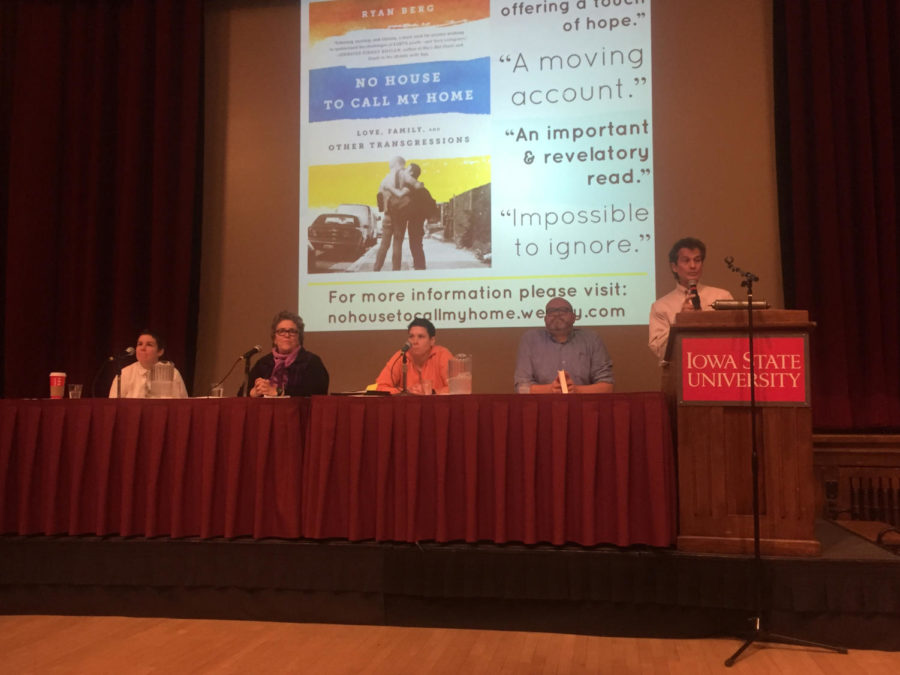Ryan Berg, panelists discuss the plight of homeless LGBTQ+ youth
Ellen Bombela/Iowa State Daily
A panel leads a discussion about homelessness in the LGBTQ+ community with an emphasis on youth in Iowa. The discussion took place on Monday in the Great Hall of the Memorial Union.
November 9, 2015
Ryan Berg and a group of panelists came to the Great Hall of the Memorial Union on Monday night to discuss “The Plight of Homeless LGBTQ+ Youth” with an emphasis on youth in Iowa.
Ryan Berg, the author of “No House to Call My Home: Love, Family, and Other Transgressions,” was the main speaker of the night.
Berg talked about some of his experiences while working in New York City as a counselor for LGBTQ teens in foster care.
Berg read a clip from his book, a story about one of the teens he worked with and the hardships she had being a part of the LGBTQ community and trying to find her place in a foster home that would accept her and treat her right.
After Berg finished reading the clip from his book, the other members of the panel discussed different topics surrounding LGBTQ+ youth, their foster care and fitting into the community.
The discussion started with Kai McGee from Iowa Kids Net.
McGee, a former foster parent herself, talked about how there are no policies to protect the status of the LGBTQ+ youth who are in foster homes, which is the reason why many of them feel safer living on the street rather than in their own homes or in foster care.
“I can’t imagine being a kid and being stuck in a home with people who might not have the same beliefs as me, the same values as me or [that] identifies with me,” McGee said in regard to the fact that there are no policies to protect the kids who may identify differently than the families they become a member of.
Donna Red Wing from One Iowa spoke next. She talked about how members of the community need to help the LGBTQ+ youth move forward and accept them and invite them into the community.
“These are our children. It’s our job to create that safe place and space for them to live, to thrive, to be who they’re supposed to be,” Red Wing said. “We need to look at adoption. We need to look at foster care. We need to look at supporting the organizations and the individuals who provide for them, and we need to educate others about who they are.”
Julia Webb from Youth & Shelter Services was last to speak.
Webb focused on encouraging members of the audience to help the LGBTQ+ youth, whether as providers or supporters.
She talked about what audience members could do to help the cause, and how people can create a safe space around them simply by openly talking about the subject and being a person who will speak up for the children who feel like they are voiceless.
The evening closed with a few questions from audience members that the panel members discussed.

















